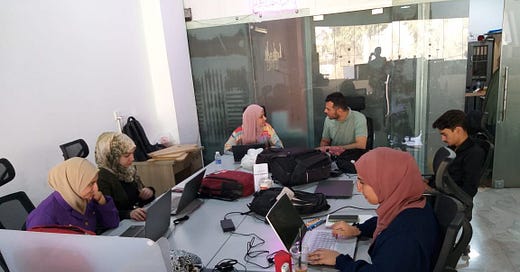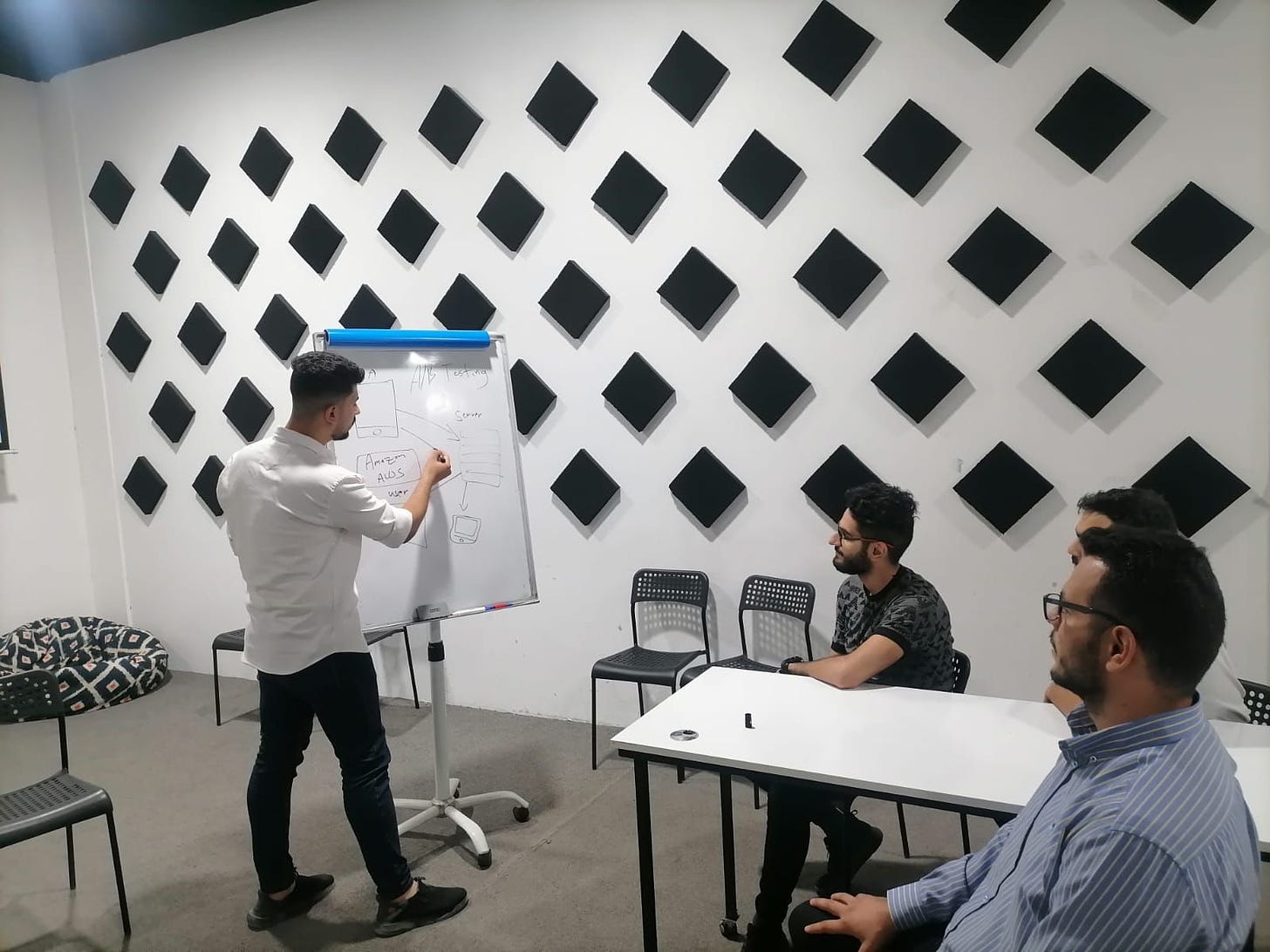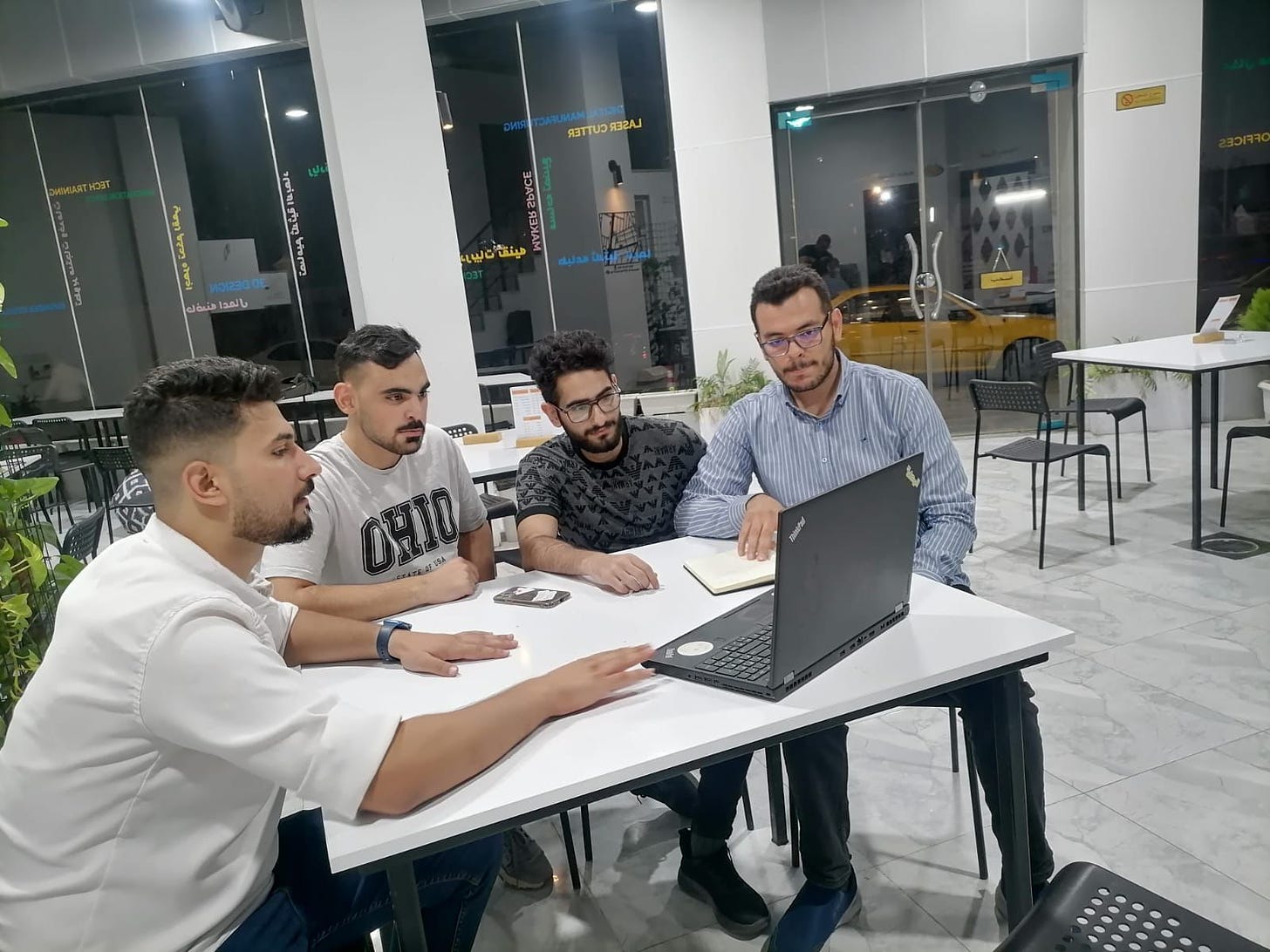Rebuilding Mosul, One Startup at a Time
Iraqi entrepreneur Yousif Alneamy believes startups are the first step to a brighter future for Mosul
In the most stressful moments of running his startup, Yousif Alneamy imagines life with a steady salary and regular hours. Having founded the first startup in Mosul after its liberation from ISIS in 2017, he is familiar with the pressures of owning a business. “When something happens in the country that affects us badly, I wonder why I do this, why I make my life difficult,” he says. Yet even before his first startup Dakakenna folded, Alneamy was working on a new idea to target a different sector. “I like the challenge, maybe that’s not always good in Iraq,” he says.
A software engineer who graduated first in his class, Alneamy has always had an entrepreneurial streak. Living in Mosul through one of the most difficult periods in Iraq’s recent history, he saw the city’s slow recovery from life under ISIS and believes startups have a role to play in galvanizing growth. “Small business can lead the way, but we also need factories to produce things locally because the vast majority of products here are imported,” he says, pointing to one of the challenges facing entrepreneurs when it comes to sourcing materials.
Alneamy’s advice is to choose established sectors and enhance products or services that already exist, rather than creating something from scratch. “Inventing is good but it’s risky. It takes more time, more effort, more money…. we need to take what is working and expand from there,” he says. His latest venture, Falaq, draws on this philosophy by targeting the way pharmacies order medicines via an app that streamlines the process and resolves inefficiencies in the system.
The app, which now has 12 suppliers on its books, allows pharmacists to put through orders online, minimizing the space for errors made over the phone. Suppliers pay a fee, which is how the company generates revenue. In return, they can make purchases at any time of day, receive products faster and rely on accurate orders. “We believe that the value proposition Falaq offers is much better than the traditional way,” Alneamy says. “People are converting step by step.”
The idea came after he overheard a pharmacist placing an order on the phone. After interviewing around 50 local pharmacists about their experiences with this system, he realized there was a gap in the market for a more efficient process. “We were looking to see if there was a pattern to the problems they faced,” Alneamy says.
Most said they frequently received orders that were incomplete or contained errors. One said that nine out of 10 orders she placed were wrong. So Alneamy arranged to work with a local pharmaceutical supplier to understand the issues. “You can’t just make an app and reach out to suppliers. You need to know how the market works before taking that step,” he says.
This is where Alneamy values his prior experience as an entrepreneur. When the first business failed, he viewed it as a stepping stone. “We were fresh, we only had courage and appetite for challenge, but we learnt,” he says. He shares this with other aspiring entrepreneurs who ask for advice. “The startup sector here is not mature, you need to start and fail a few times before getting something that works.”
At present, aspiring entrepreneurs with the opportunity to try their ideas are in the minority. This is where Ideas Beyond Borders hopes to help by empowering a new generation to put bold ideas into action. Through the Innovation Hub, and our latest project targeting the startup sector Open for Business in Kurdistan, IBB is helping young people build knowledge and networks to pursue social enterprise projects, launch businesses and invigorate Iraqi towns and cities with their dreams of a better future.
“The next generation is looking for new ways to solve the challenges they face. More and more young people we meet are taking matters into their own hands with ideas that will bolster growth, create employment and modernize sectors that are stuck in the past,” says Faisal Al Mutar, President of Ideas Beyond Borders. “Startups like Falaq show what can happen when a good idea breaks through. Our aim is to help them thrive and enable many others to do the same.”
At first, suppliers were wary about signing up to Falaq. In a competitive market, they were reluctant to share details on an app that would be visible to competitors. But after a slow start, both suppliers and pharmacists began to see the benefits and Falaq quickly gained traction. Today, it has inspired a slew of copycat apps but retains its lead in the market, As Alneamy says, “There are opportunities for startups here, but you need to pick the right fields.”
This article was written by Olivia Cuthbert.






